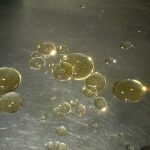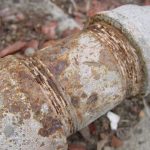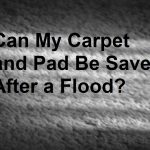A
clogged pipe can create massive problems around your home. When a drain is clogged, it can not only slow waste water draining, but can put your home at risk of flooding. While any home can be at risk of a clog, there are some crazy things that can increase your chances one developing inside your pipes.
The Development of a Clog
Clogs rarely occur overnight; they are an accumulation of debris that builds up inside the drain. In most cases, debris starts to collect on the walls of the pipe, but this attracts more debris. This gradually reduces the diameter of the pipe, reducing water flow. Once the debris accumulation has reached the point where water is struggling to pass through the pipe, it is referred to as a clog and needs urgent attention.
Crazy Things That Should Never Go Down the Drain
While most of us are aware that our drains should not be considered another garbage can around our homes, there are some crazy things that we may not have considered a danger to our drains. Some of these items may appear innocuous, but will almost certainly lead to a clogged pipe.
Dental Floss: This is made to be strong to ensure that your teeth and gums are fresh and clean. Unfortunately, dental floss is rarely biodegradable, so it collects in drains and pipes acting like a magnet to snare food debris, oils, hair and other yucky bits that can clog up the pipe. Dental floss should always be thrown in the trash and never put it down the drain.
Cat Litter: It can’t be stressed strongly enough, but cat litter should never be placed down the drain or flushed down your toilet. Cat litter is designed to “clump” when it is wet to trap your cat’s toilet business and any nasty smells. Unfortunately, when flushed cat litter forms into a large clump that will clog up the pipe.
Flushable Products: Cotton pads, cleaning wipes and feminine hygiene products may be labeled as “flushable,” but this can be very misleading. These products should be thrown in the trash, not flushed down your toilet. Many of these items will disappear out of the toilet bowl, but once they reach the drain, they can cause major trouble, clogging the pipe.
Develop Good Drain Practices
The best way to prevent a clogged drain in your home is to develop good drain practices. You should think carefully about your drains and ensure that you avoid allowing anything inappropriate to be flushed. Toilets are designed to dispose only of human waste and toilet paper, so don’t allow anything else to be flushed. Place traps over the drain in your tub and shower to prevent hair and other debris from being washed down the drain. You should also take care with the drain in your kitchen sink. Avoid allowing food particles to be washed down the drain, and you should never put oil, grease, and fats down the drain as these will solidify and clog.
Taking care with your drains can significantly reduce the risks of a clog developing and reduce your plumbing headaches.
By Giovanni Longo President Flood Brothers Plumbing
Giovanni Longo is a 3rd generation master plumber who has been practicing his craft and trade in the greater Los Angeles area for well over a decade and a half. A plumbing and hydraulics-engineering innovator, Giovanni’s particular world-class expertise focuses on dealing with challenging sewer system designs as well as resolving complex commercial and residential draining issues. As a certified Flood Mitigation expert, he is also well versed in a wide variety of water damage and remediation solution.





